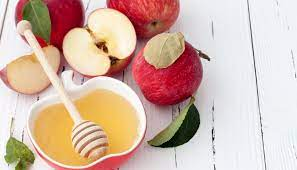After a few weeks of irritations and rejections, feeling mostly let down both by people I know and by those who really have no obligation to me, I judged it time to move onto new people. OLLI provided some, as it always does, though more reacquaintance than new friendship. Same with attending synagogues other than my own, though at RH services I expressed my appreciation to their Torah reader, who I had never approached in all the years going there, for standing aside so that somebody else once a member but now a visitor could have his turn.
When I created my current semi-annual projects, I included having three dinner guests. Periodically I would jot on a scrap sheet who I might like to have and for what reason. The sukkah is designed for guests. It's construction, sometimes its expense, exceeds the capacity of everyone to have one. I also have non-Jewish friends who lack familiarity with the tradition. I went that route last year, and again now, with a relatively new medical friend with second degrees of connection suitable to my wife agreeing to join us for shabbos.
If anything energizes me in my retirement years, it has been planning and creating special dinners, which usually follow an occasion to justify the effort. And so I began just as soon as my invitation was accepted. Start by confirming guests' dietary restrictions. Then a sheet of paper divided into eight rectangles for the individual dishes. I always make challah if shabbos or yontif, a different bread if not. I like making bread, always edible, not always elegant appearance as it too often flattens on the second rise. There are different sections for appetizer and soup, though I wonder if both are really needed. I find the soup more versatile, both in its selection and in its ability to introduce the rest of the menu. Always a salad and if I make one needing a dressing, I make my own. Entree for outside guests has been in recent times whole roast chicken. The NYT made Mark Bittman's process for this publicly available. It's been flawless the two times I made it, and there are different variations. Whole Kosher chickens are readily available, though they take up a lot of room in the freezer while waiting to be used. Precut chicken is also mostly available and stacks with other things in the freezer. It combines easily for chicken cacciatore or doro wat. And as much as pastilla, or Moroccan chicken pie challenges me, its steps are more tedious and outcome too uncertain to place on a guest menu. I usually make a kugel, though with some of the more liquid versions of chicken, a layer of rice beneath will work better. And there is a vegetable. And I invariably make some variation of cake for dessert.
While American food gets imported from everywhere with most of the world's climates represented, seasons remain important to me. Gazpacho or other cold soup in the summer, apples in the fall, root vegetables in the winter, and asparagus for Seder in the spring.
While cookbooks have become obsolete, the online recipes being far more plentiful and individually searchable, I've never lost my fondness for the books. I've also acquired my own favorite things to make. I like phyllo. Apple cake and nut tortes can complete any meal. Slabs of beef have gotten too expensive, even for guests, and don't always have the reliability of preparation of poultry, but when on sale, I like making pot roasts. Salads have drifted to mostly multicolor Israeli salad or cucumber salad.
I also like to mingle ethnic origins of what I make. My ancestry, genetic and culinary, is Eastern European, though the Hungarian and Polish contributions differ. I find a place for Middle Eastern, less for Far Eastern or African or British.
So, I've begun. Eight rectangles. Jewish apple cake for dessert for sure, all else open, but jotted my favorites in each category. Surfed my favorite cookbooks. Sampled Sukkot menus on the web much less plentiful than menus proposed by food mavens for other occasions. And not get so focused on the food as to neglect other means of making our guest as welcome as we can.


















